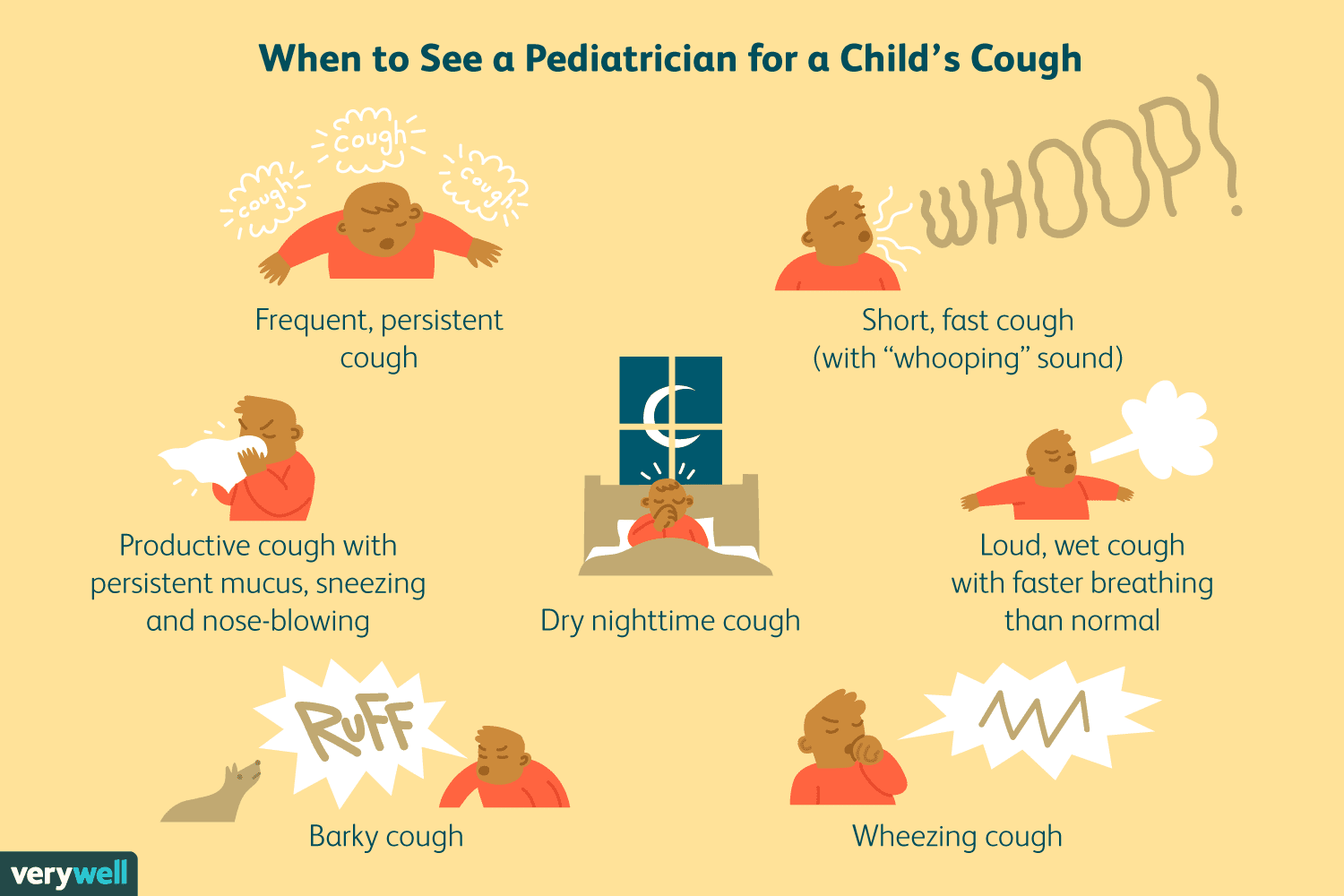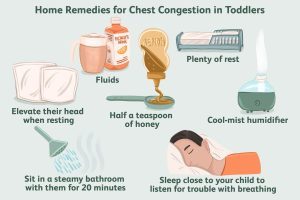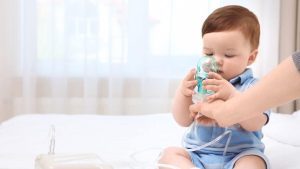Baby coughing in sleep can be caused by irritants, allergies, or a common cold. It’s important to monitor the frequency and severity of the coughing to determine if medical attention is needed.
While occasional coughing is normal, persistent or severe coughing may indicate an underlying issue that requires professional evaluation. If you notice your baby coughing frequently during sleep, it’s best to consult a pediatrician for proper diagnosis and treatment. Additionally, creating a calm and soothing sleep environment, using a humidifier, and keeping the baby’s sleeping area free from allergens can help alleviate coughing and promote better sleep for your little one.
Understanding Baby Coughing In Sleep
Coughing is a common occurrence in babies, especially during sleep. Understanding baby coughing in sleep is essential for parents to ensure their little ones are healthy and comfortable. In this article, we’ll delve into the possible causes of baby coughing in sleep and when to be concerned about it.
Possible Causes Of Baby
Baby coughing in sleep can be attributed to various factors. Some common causes include:
- Cold or respiratory infections
- Allergies to environmental factors
- Reflux or gastroesophageal reflux disease (GERD)
- Environmental irritants such as dust or pet dander
When To Be Concerned About Baby Coughing In Sleep
While occasional coughing in babies is normal, there are certain signs that may indicate a need for medical attention. Parents should be concerned if:
- The coughing is persistent and accompanied by wheezing or difficulty breathing
- The baby has a fever or appears to be in distress
- The coughing disrupts the baby’s sleep or feeding patterns
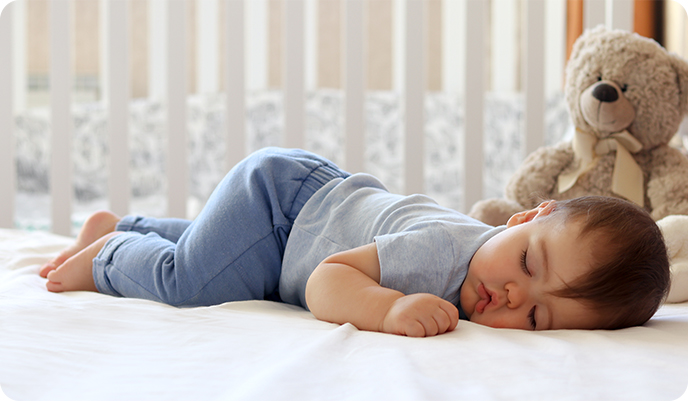
Tips For Preventing Baby Coughing In Sleep
Baby coughing in sleep can be distressing for parents. Here are some simple tips to help prevent your baby from coughing while they sleep:
Ensure Proper Hydration
Offer small sips of water throughout the day to keep your baby hydrated. Dry air can trigger coughing, so consider using a humidifier in the room.
Maintain A Clean Environment
Regularly clean your baby’s room to remove dust and allergens. Wash bedding and stuffed toys frequently to prevent irritation.
Avoid Exposure To Irritants
Keep pets out of the baby’s room to minimize exposure to pet dander. Avoid smoking near your baby as secondhand smoke can worsen coughing.
Home Remedies For Soothing Baby Coughing In Sleep
Baby coughing during sleep can be distressing for both the little one and the parents. Fortunately, there are simple home remedies that can help soothe your baby’s coughing and ensure they get a restful night’s sleep.
Steam Therapy
Steam therapy can help ease your baby’s cough by loosening mucus in the chest and throat.
Elevating The Head Of The Crib
Elevating the head of the crib can help reduce post-nasal drip and ease coughing during sleep.
Humidifiers And Vaporizers
Using humidifiers and vaporizers in the baby’s room can help keep the air moist, reducing irritation in the throat.

When To Seek Medical Attention For Baby Coughing In Sleep
If your baby is coughing persistently during sleep, it’s essential to seek medical attention promptly. Persistent coughing can indicate underlying health issues that require professional evaluation and treatment to ensure your baby’s well-being and quality of sleep. Consulting a healthcare provider can provide guidance on managing the situation effectively.
When to Seek Medical Attention for Baby Coughing in Sleep If your baby is coughing in their sleep, it can be a cause for concern. While occasional coughing is normal, persistent or severe coughing can be a sign of an underlying issue. Knowing when to seek medical attention is crucial for your baby’s health and well-being.
Symptoms to Watch For 1. Persistent Coughing: If your baby’s coughing persists for more than a week, it’s essential to consult a healthcare professional. 2. Wheezing or Struggling to Breathe: If your baby is wheezing or having difficulty breathing along with the cough, seek immediate medical attention. 3. Fever and Fatigue: If your baby is experiencing fever, fatigue, or decreased appetite along with the cough, it may indicate a more serious condition. What to Expect During a Doctor’s Visit During your visit, the doctor will likely: – Take a thorough medical history and ask about your baby’s symptoms. – Perform a physical examination, including checking the baby’s lungs and airways. – Recommend further tests or imaging if necessary to determine the cause of the cough. Remember, as a parent, it’s essential to trust your instincts. If you feel that something is not right with your baby’s cough, don’t hesitate to seek medical attention. Your proactive approach can help ensure your baby receives the necessary care and treatment.
Medications And Treatments For Baby Coughing In Sleep
Discover effective medications and treatments to ease baby coughing during sleep. From gentle baby-safe cough syrups to natural remedies like steam therapy, finding relief for your little one’s nighttime coughing is essential for a peaceful night’s rest.
If your baby is coughing in their sleep, it can be a cause of concern for parents. Coughing can be a symptom of various conditions, including allergies, cold, flu, or asthma. It is essential to identify the underlying cause of the cough and treat it accordingly. In some cases, medication may be required to ease the symptoms and help your baby sleep better. Here are some medications and treatments that can help your baby with coughing in sleep.
Over-the-counter Medications
Over-the-counter medications can be used to relieve the symptoms of coughing in babies. However, it is essential to consult your pediatrician before giving any medication to your baby. Here are some common over-the-counter medications that can be used to treat coughing in babies:
- Cough syrups: Cough syrups can be used to ease coughing and soothe the throat. However, many cough syrups contain alcohol, which is not suitable for babies. Therefore, it is essential to choose a cough syrup that is specifically designed for babies and does not contain alcohol.
- Nasal saline drops: Nasal saline drops can be used to loosen mucus in the nose and throat and relieve congestion. They are safe and effective and can be used as often as necessary.
- Vapor rubs: Vapor rubs can be applied to the chest and neck to ease coughing and congestion. They contain ingredients such as eucalyptus, camphor, and menthol, which help to open up the airways and improve breathing.
Prescription Medications
If your baby’s cough is severe or persistent, your pediatrician may recommend prescription medication. Here are some common prescription medications used to treat coughing in babies:
- Bronchodilators: Bronchodilators are medications that help to open up the airways and improve breathing. They are usually prescribed for babies with asthma.
- Corticosteroids: Corticosteroids are anti-inflammatory medications that can help to reduce swelling in the airways and relieve coughing. They are usually prescribed for babies with asthma or allergies.
- Antibiotics: Antibiotics are only prescribed if your baby has a bacterial infection, such as pneumonia. They are not effective against viral infections, such as colds or flu.
Alternative Treatments
In addition to medication, there are some alternative treatments that can help to ease coughing in babies. Here are some examples:
- Humidifiers: Humidifiers can be used to add moisture to the air and relieve dry coughs. They are especially helpful during the winter months when the air is dry.
- Elevating the head: Elevating your baby’s head during sleep can help to reduce coughing. You can do this by placing a pillow or cushion under the mattress.
- Breastfeeding: Breastfeeding can help to boost your baby’s immune system and reduce the risk of respiratory infections, which can cause coughing.
In conclusion, if your baby is coughing in their sleep, it is essential to identify the underlying cause and treat it accordingly. Medication may be required to ease the symptoms and help your baby sleep better. However, it is essential to consult your pediatrician before giving any medication to your baby. Alternative treatments can also be used to ease coughing in babies.
Managing Your Own Stress And Anxiety
The Impact Of Baby Coughing On Parents
Baby coughing in sleep can be distressing for parents, causing worry and anxiety.
Tips For Coping With Stress And Anxiety
- Stay Calm: Take deep breaths to manage your own stress levels.
- Seek Support: Talk to a friend or healthcare provider for reassurance.
- Practice Self-Care: Get enough rest, eat well, and exercise to stay healthy.
- Stay Informed: Educate yourself on baby coughing and when to seek medical help.
- Stay Positive: Focus on the moments of joy with your baby to alleviate stress.
Remember, taking care of your own well-being is crucial in managing stress and anxiety when dealing with your baby’s coughing episodes.
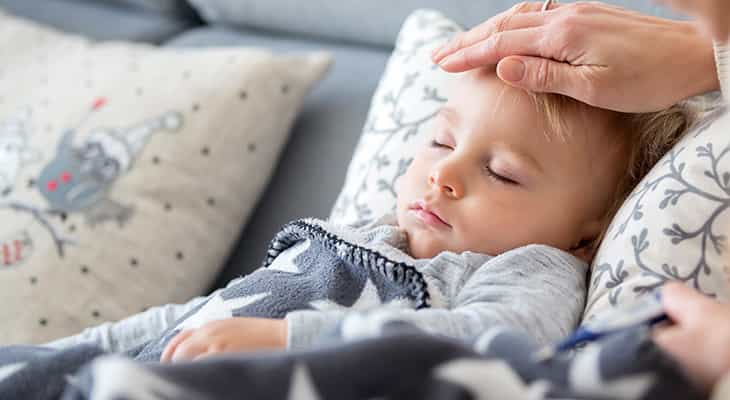
When Should You Worry About A Baby’s Cough?
If your baby’s cough persists for more than a week, or if they have difficulty breathing, seek medical attention. Keep an eye out for high fever or wheezing.
When Should I Be Concerned About My Child’s Cough At Night?
If your child’s cough at night persists for more than a few days, consult a pediatrician. Persistent coughing could indicate a respiratory infection or asthma. Seek medical advice if the cough is accompanied by fever, difficulty breathing, or wheezing.
Why Does My Baby Cough And Gag In His Sleep?
Babies cough and gag in sleep due to reflux, nasal congestion, or respiratory infections. Positioning and monitoring can help.
Can Teething Make Baby Cough In Sleep?
Teething can lead to excess drooling which may cause baby to cough in sleep.
Conclusion
If your baby is coughing in their sleep, it can be concerning. Remember to keep a close eye on their symptoms and consult with a pediatrician if necessary. By understanding the potential causes and taking appropriate actions, you can help ensure your baby sleeps soundly and comfortably.

